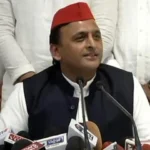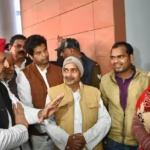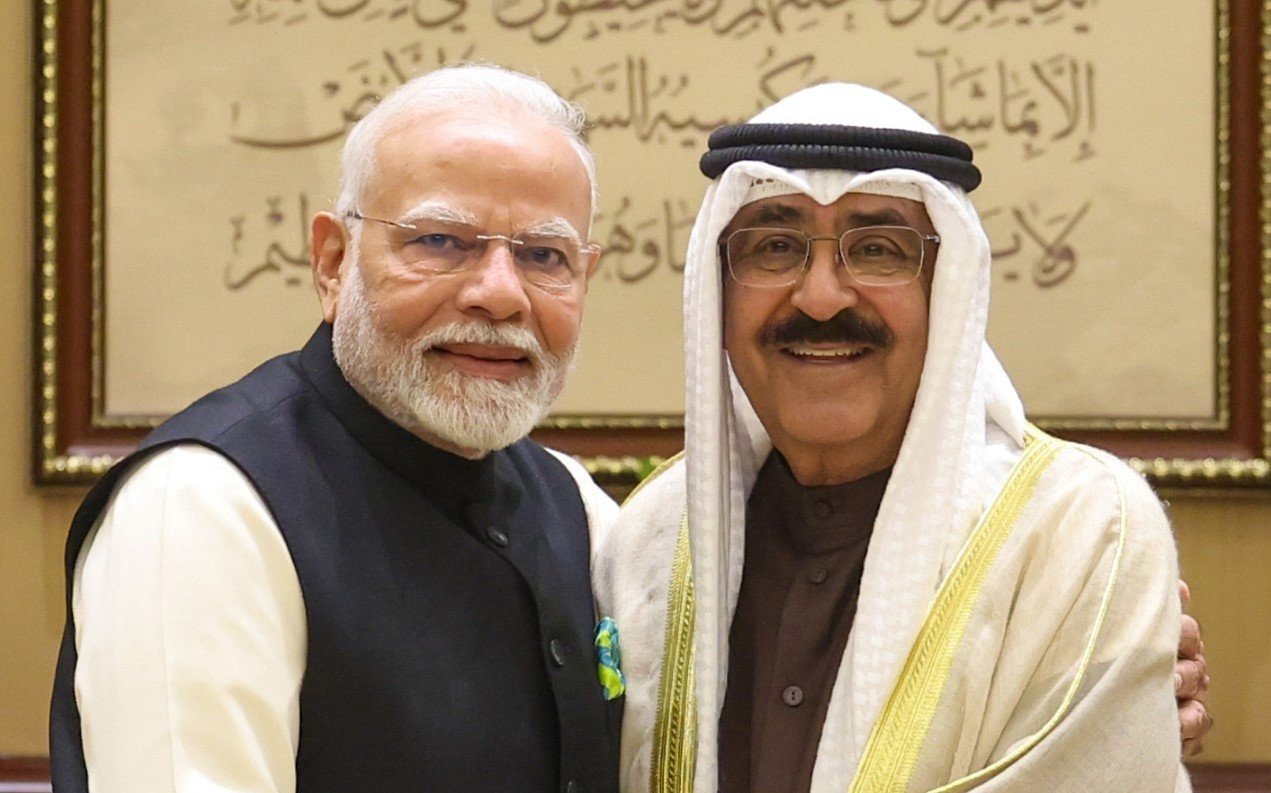
BY MOHAMMAD TARIQUE SALEEM / MOHAMMAD SUFI
Prime Minister Narendra Modi’s two-day visit to Kuwait, from December 21 to 22, 2024, marked a transformative chapter in India-Kuwait relations, making history as the first visit by an Indian Prime Minister to the Gulf nation in over four decades. This milestone showcased a renewed energy and intent to deepen the enduring ties between the two countries, reflecting a bond rooted in both shared history and a vision for the future.
The warmth of the relationship was evident from the very start. At Bayan Palace, Prime Minister Modi was welcomed with a ceremonial Guard of Honour, a gesture symbolizing Kuwait’s respect and hospitality. During his meeting with His Highness Sheikh Meshal Al-Ahmad Al-Jaber Al-Sabah, the Emir of Kuwait, the two leaders delved into the longstanding friendship that binds their nations. They acknowledged the historical connections and emphasized their mutual commitment to broadening the scope of their bilateral relationship, which was elevated to a ‘Strategic Partnership’ during this visit.
The Prime Minister expressed his heartfelt appreciation for the Emir’s care and support for the Indian diaspora in Kuwait, which exceeds one million individuals. Their role in Kuwait’s growth story was highlighted as vital and invaluable. Meanwhile, the Emir recognized India’s significance as a strategic partner, expressing optimism about India’s contribution to Kuwait Vision 2035, an ambitious roadmap for sustainable development and diversification of the Kuwaiti economy.
On the second day, Prime Minister Modi held discussions with Sheikh Ahmad Al-Abdullah Al-Ahmad Al-Sabah, Kuwait’s Prime Minister. These talks explored avenues for enhanced collaboration in sectors crucial to both nations, including pharmaceuticals, Information Technology, FinTech, infrastructure, and security. These areas were identified as pivotal for bolstering economic growth, fostering innovation, and addressing shared challenges in an increasingly interconnected world.
An essential highlight of the visit was the Prime Minister’s interaction with the vibrant Indian community in Kuwait. Recognized as a vital bridge between the two nations, this diaspora has contributed significantly to Kuwait’s socio-economic fabric while maintaining strong cultural ties to India. Their dedication and efforts have become emblematic of the symbiotic relationship between the two countries.
The decision to elevate bilateral ties to a ‘Strategic Partnership’ signals a new era of cooperation. This upgraded relationship is anticipated to drive progress in areas such as defense collaboration, trade, and cultural exchange. In particular, maritime security has emerged as a key focus, with increasing naval cooperation and regular visits by Indian naval ships underscoring the importance of the region’s stability.
Economically, India and Kuwait have established themselves as significant trading partners. The bilateral trade volume for 2023-24 reached approximately $10.479 billion, with Indian exports accounting for $2.24 billion and imports standing at $8.24 billion. The visit provided an opportunity to explore ways to diversify and expand this trade relationship, especially in dynamic fields like FinTech and IT, which are poised for substantial growth.
Cultural ties have always been a cornerstone of the India-Kuwait partnership. The large Indian expatriate population in Kuwait plays an instrumental role in fostering cultural exchange and mutual understanding. During his visit, Prime Minister Modi participated in engagements celebrating these connections, reinforcing the importance of people-to-people relations as a foundation for the broader partnership.
Prime Minister Modi’s historic visit has undoubtedly paved the way for a more robust and forward-looking alliance between India and Kuwait. The agreements and initiatives set in motion during this visit hold the promise of mutual prosperity and shared progress. As both nations embrace this new strategic partnership, they are poised to explore untapped opportunities and work collaboratively toward common goals, building upon their shared history and aspirations for a brighter future.











